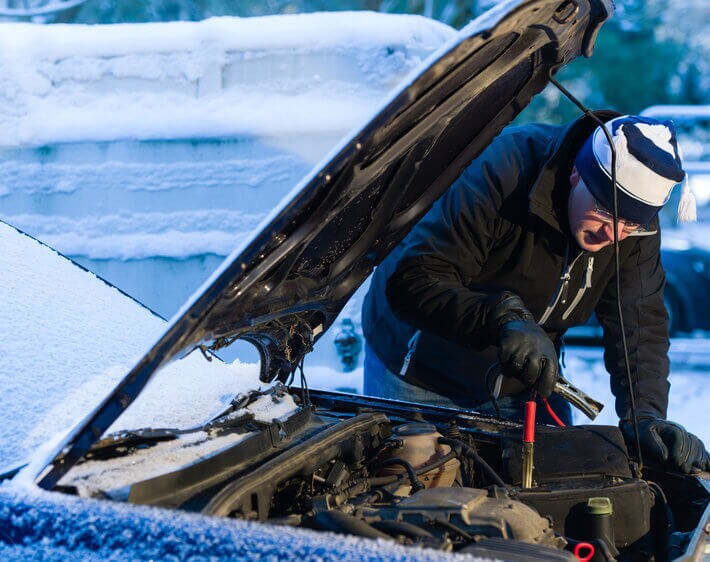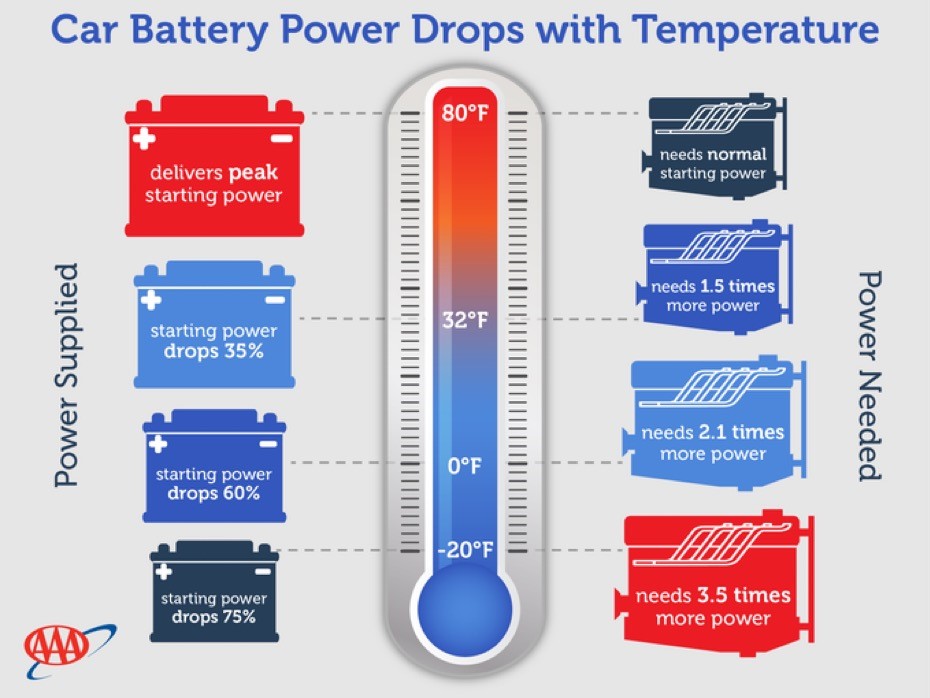
With extreme arctic temperatures forecast for the area starting this past weekend and throughout next week, AAA Oklahoma urges drivers to make sure their vehicles are ready for the cold.
 “Winter is a tough season on vehicles,” said AAA Oklahoma spokesperson Rylie Fletcher. “Last winter (Dec. 2022-March 2023), AAA emergency roadside service crews responded to more than 58,000 calls for assistance in Oklahoma alone. The sudden onset of dangerously cold weather often leads to a spike in assistance calls, especially for dead batteries.”
“Winter is a tough season on vehicles,” said AAA Oklahoma spokesperson Rylie Fletcher. “Last winter (Dec. 2022-March 2023), AAA emergency roadside service crews responded to more than 58,000 calls for assistance in Oklahoma alone. The sudden onset of dangerously cold weather often leads to a spike in assistance calls, especially for dead batteries.”
Batteries
Did you know that a car battery loses a third of its power in freezing weather? Because as the air outside cools, the oil in your car thickens. Parts move slower, and your battery has to use more power to turn over and start the engine. If the temperature drops to zero or below, your battery has only HALF its power to start the vehicle.
Here are a few quick tips to help you avoid the moment when you turn the key in the ignition and nothing happens.
Warning Signs
- Your car doesn’t start immediately, or makes a clicking noise when you turn the key.
- Your headlights or interior lights are dimmer than normal, or the power windows are working slower than usual.
- You see stains or signs of corrosion on the battery itself.
- Your battery is more than three years old.
- You take a lot of short trips where the car is turned on and off often, or you have long stretches of time (weeks or months) where the car is not used at all.
What You Can Do
- Park your car in a garage, if possible. The less frigid the air is around your car, the better for your battery.
- Turn off your lights, wipers, and heater before you turn off your engine at the end of a drive to prevent an unnecessary drain on the battery the next time you start your car.
- Unplug phone chargers and USB cables for devices like iPods as soon as you turn off your engine (for the same reason as #2).
- Avoid using your car’s heater longer than you have to; heaters put high demands on your battery.
- If you see corrosion on your battery, clean it or have it cleaned by a trained technician.
- If you consistently go two weeks or longer without using your car during the winter, invest in a battery tender to keep the battery charged.
- If you plan on not using your car for an extensive period of time during winter, it is important to turn it on every day and take it for a short drive or let it run idle for 15 – 20 minutes so that it reaches operating temperatures. This provides current to the battery, allowing it to regain its charge.




